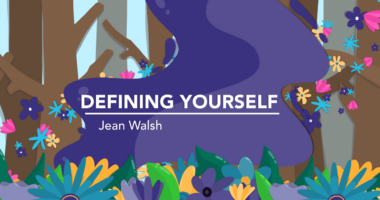An understanding of the imago dei was formative in my life with FA
Reflecting on the conversation that shaped how I live and work in the world

“What do you wish to achieve in this life?” my friend Tony asked.
I sat down for a moment to rest. It was a loaded question, one I hadn’t been asked in years. I had just earned my graduate degree in biblical studies, and at 29 years old, I imagined such questions behind me, so I signaled for another moment to consider and continued my workout routine.
Planting my feet on the rubbery gym floor, I grabbed onto the bar in front of me and slowly rose from my scooter. With the use of my arms, it was still possible for me to activate my hips, knees, and feet without the balance and coordination needed for ordinary activity. As I let the blood circulate through my body, I felt vitality in my feet and breathed a sigh of relief as I sat back down.
I turned my head to look at the gray-haired figure with the friendly eyes and serious demeanor. “I just want to have victory,” I confessed.
I wanted to triumph over the forces that were against me, but I could give no concrete answer. I prefer to rehearse answers for such personal questions, but I was caught off guard, and it became clear that my ambition was unverbalized, even to myself — perhaps a result of being crushed under the weight of living with a rare degenerative disease.
Tony knew better. “But what do you want to do with your life?” he pried.
I was the type of guy who had answers, so I drew the ultimate answer from my heritage, my faith, and my learning. “I want to glorify God,” I said at last. To glorify God, or to magnify him, to spread his fame, was the best answer, I felt, and was consistent with biblical doctrine as laid out in the Westminster Shorter Catechism: “Man’s chief end is to glorify God, and to enjoy him forever.”
But there was a look of quaint disapproval.
A formative friendship
Horacio Ayala is an acquaintance from my local church who became a cherished friend in the years after he first invited me to work out with him at the gym. Tony, the name he prefers, has always been dedicated to physical fitness and advocates it as the “best medicine.” It’s a discipline that’s served him well — as a special forces officer, an amateur boxer, and a DEA agent, in dealing with illness, and in his daily tasks in his gentle civilian life.
When Tony invited me to the gym and offered to pay for my first month, I was reluctant. I wasn’t the type that kept to a strict schedule. I enjoyed swimming, along with yoga, and I felt the beneficial effects of exercise in managing my declining physical state, so I returned to these self-preservation activities often. I was up against a great foe in Friedreich’s ataxia (FA), but it was an enemy I was most comfortable facing alone and in my own undisciplined way.
However, I accepted the offer, which resulted in one of the most important friendships of my life.
Reflections on the image of God
“David, this is not how we glorify God,” Tony replied. “Let me explain something to you,” he said, looking into my eyes as I rested on my scooter at the gym.
He reminded me that, according to our faith, God created man in his image (known in Latin as imago dei) and made him to “work and serve” his creation (Genesis 1:27, 2:7-15). Tony explained that, as Christians, we have a responsibility to work and to serve, and obedience to what God designed men and women to do is what glorifies him. “Find something to do, and do it with all your might,” was his final point. “This glorifies God.”
It is not my intention to proselytize but to give my perspective. In my last column, I wrote about how technology changed my life. It remains that two lessons overshadowed my workout at the gym that day.
First, partaking in something beyond my comfort level resulted in blessings and a profound friendship that’s been formative in my life.
Second, believing that the image of God is the most fundamental aspect of human nature continues to affect how I live and work in this world, motivating my choice to pursue the arts, giving me resolve to strive after it, and providing me a guide that keeps me on the right path.
Note: Friedreich’s Ataxia News is strictly a news and information website about the disease. It does not provide medical advice, diagnosis, or treatment. This content is not intended to be a substitute for professional medical advice, diagnosis, or treatment. Always seek the advice of your physician or another qualified health provider with any questions you may have regarding a medical condition. Never disregard professional medical advice or delay in seeking it because of something you have read on this website. The opinions expressed in this column are not those of Friedreich’s Ataxia News or its parent company, BioNews, and are intended to spark discussion about issues pertaining to Friedreich’s ataxia.









Comments